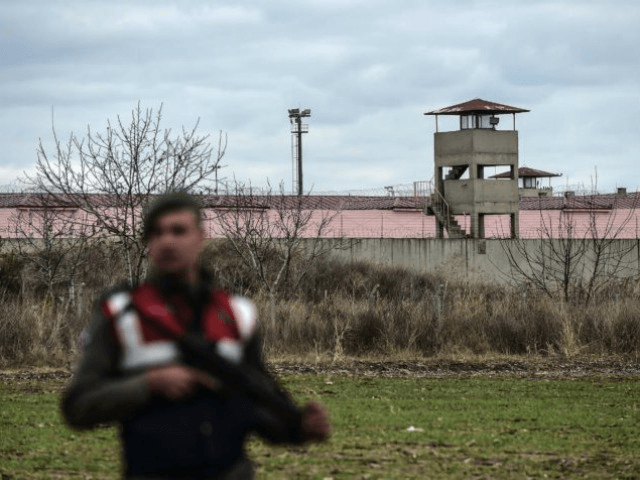Turkish investigative reporter Ahmet Şık, on trial for terror-related charges along with over a dozen writers and editors of his newspaper Cumhuriyet, called Turkey “the biggest journalists’ prison in the world” and refused to plead, instead accusing the judiciary “lynch mob” of silencing descent.
His remarks occurred shortly before the court concluded the hearing, the last in a string beginning Monday that had attracted large protests in Istanbul by the nation’s secularist activists. Cumhuriyet is the oldest newspaper in circulation in Turkey, and the largest opposition, secularist publication still permitted to publish following the government takeover of dissident newspaper Zaman.
Secular activists accuse President Recep Tayyip Erdogan of using his position to amass power and increasingly Islamicize the country, imposing Islamic education in schools, allowing prayers in the Hagia Sophia museum, and cracking down on secular opponents.
Following the defendants’ statements, the court ordered the release of seven of the twelve detained journalists, while affirming that five must remain behind bars, including Şık and editor-in-chief Murat Sabuncu. The court validated the arrest warrants for former editor-in-chief Can Dündar and İlhan Tanır, who are no longer in the country. The journalists are variously accused of membership in a terrorist organization or aiding a terrorist organization without being a member for allegedly supporting the Marxist Kurdistan Workers’ Party (PKK) or Islamic cleric Fethullah Gulen. Erdogan’s government blames Gulen for last year’s failed coup against him.
Şık, who wrote extensively against Gulen before Erdogan and the cleric became enemies, delivered an impassioned denunciation of the government. “I am not defending myself here, I am not testifying—on the contrary, I am accusing,” he said, according to the transcript published by Cumhuriyet. He accused Erdogan’s Justice and Development Party (AKP) of “fictitious history writing” with their speculation on who organized the coup, accused the AKP of hiring for public jobs “AKP staff based on loyalty to the party, not qualifications,” and emphasized that there are over 150 known journalists behind bars in Turkey, making it “the biggest journalists’ prison in the world.” Şık’s accusation echoed the findings of the NGO Reporters Without Borders, which has warned that Erdogan’s government has become increasingly repressive against public statements of political opposition.
Şık called the indictment against him “trash,” the relationship between Erdogan and Gulen a “Mafioso coalition,” and the prosecutors against him a “lynch mob,” according to a Washington Post translation. He faces up to 15 years in prison for allegedly aiding the PKK.
Cumhuriyet generally, and Şık specifically, have opposed Gulen publically long before Erdogan. As the Economist notes, Şık was “one of the first to document the penetration of Turkey’s security forces by an Islamist brotherhood known as the Gulen movement. When he tried to publish his findings in 2011, police seized copies of his book; prosecutors linked to the Gulenists had him thrown in prison.”
The U.S. government has called upon Turkey to cease persecuting its journalists. “We continue to urge the government of Turkey to respect and ensure freedom of expression, fair trial guarantees, judicial independence, other human rights and fundamental freedoms, and to also release the journalists and others who we believe are being held arbitrarily under the government’s state of emergency,” State Department spokeswoman Heather Nauert said on Thursday. “The United States remains seriously concerned about the widespread arrest and pretrial detention that’s taking place of individuals in Turkey who have been critical of that government.”
Nauert noted that American ambassador to Turkey John Bass has visited the Cumhuriyet offices, which “really shows our level of concern, the fact that he has gone there to express his support for journalists there.”

COMMENTS
Please let us know if you're having issues with commenting.